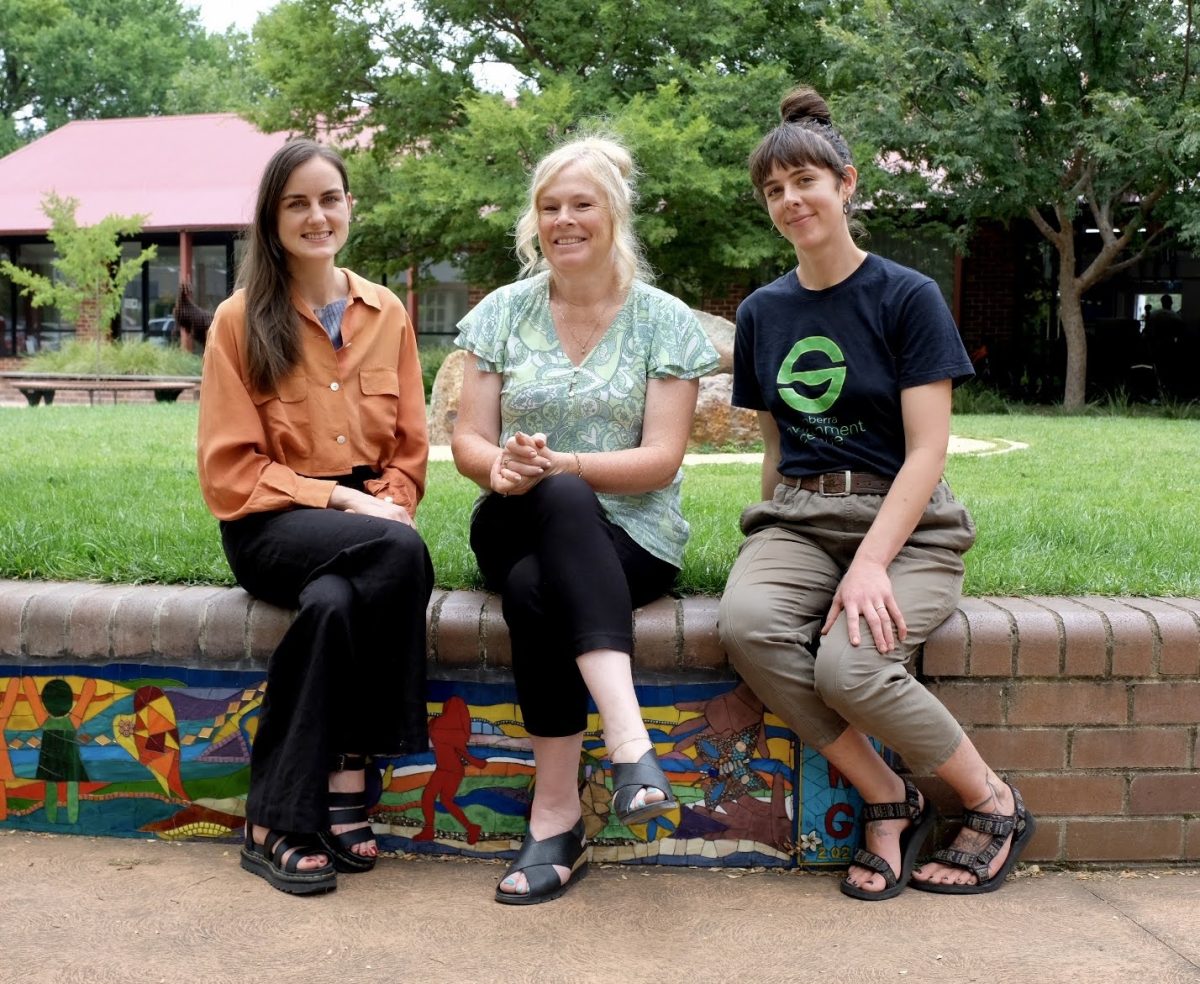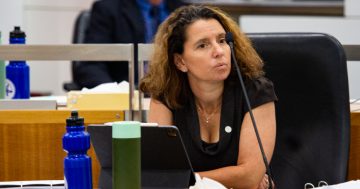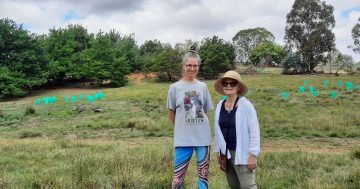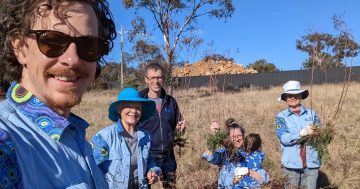
Conservation Council ACT Region’s Elle Lawless, SEE Change’s Paula Mance and Canberra Environment Centre’s Fiona Veikkanen have called on all political parties to put their pledges where their mouths are when it comes to the environment. Photo: Supplied.
Local environmental organisations contracted by the ACT Government have called on a better commitment and more money to help them do their jobs.
The Canberra Environment Centre, SEE Change and the Conservation Council ACT Region have agreements with the government to deliver environmental advocacy and education, but they said they were “severely underfunded” to deliver full results.
Canberra Environment Centre executive director Fiona Veikkanen said this was particularly important given the government had declared a climate emergency in 2020.
“We’re not being greedy about our funding ask, we’re simply aiming to provide an effective, modern, professional and safe work environment that meets the needs of our community,” she said.
“The increased funding will enable us to do this and more.”
The groups want to see more of a commitment from the government in the mid-year budget, and from other political parties for the upcoming election.
Education opportunities provided by the groups include repair cafes, the Canberra Electric Bike library, and workshops on growing food, reducing waste, composting and switching to an all-electric home.
Through advocacy, the organisations protect hollow-bearing trees, protect wildlife from extinction (such as the Gang-gang cockatoo and Canberra Dragon), and care for and regenerate nature reserves.
The operational funding they receive from the government supports only one full-time-equivalent staff member per organisation, which they argue is “significantly smaller” compared with other sectors.
“This is insufficient resources to meet additional costs due to inflation, rising insurance, the complexity of work, financial accountability, management of risk, competitiveness in the ACT labour market, insecure tenancy and the increased need for an online presence,” they said.
“Lack of funding certainty makes it difficult to invest in people and systems, plan for the future and retain staff.”
SEE Change executive director Paula Mance said her organisation had to turn volunteers away every week as “insufficient resources” meant they and their projects couldn’t be supported.
“SEE Change relies on the generosity of local community organisations to support our accommodation, with insufficient funding to meet market rent and employee expectations of modern workplaces, including staff facilities, training and employee assistance,” she said.
“For less than the cost to government of a single employee, in 2023 SEE Change’s volunteer network engaged more than 7500 Canberrans through 75 activities that included repair cafes, the Community Toolbox and local community education that encouraged people to take action to improve their sustainability.”
The organisations also provide advice to the government for policy strategies to reach net-zero emissions by 2045.
Conservation Council ACT Region executive director Elle Lawless said the government needed to prove it was taking nature protection and a safe climate future seriously by putting its money where its mouth is.
“The council plays an invaluable advocacy role in bringing the voice of community to the development of laws and legislation in our Territory,” she said.
“More funding will allow us to increase our public advocacy and participation in government policy for better outcomes for community and nature.”
Speaking as ACT Greens environment spokesperson, Rebecca Vassarotti said her party knew grassroots community organisations were the “bedrock” of efforts to protect the environment.
She pointed out that, with the first Greens Environment Minister, the government had increased environment grant funding by 60 per cent, secured long-term funding for catchment groups and ACT Wildlife, and approved additional funding to help the Canberra Environment Centre with its relocation.
“However, given the threats of climate change and biodiversity loss, it is evident we need to invest even more in environmental protection,” Ms Vassarotti said.
“That means investing funds for on-the-ground projects and the community organisations that work every day to build a more sustainable future.
“Improved funding for the environment and for these groups will be a focus for us through both this year’s budget discussions and the Greens’ commitments at the election.”





















